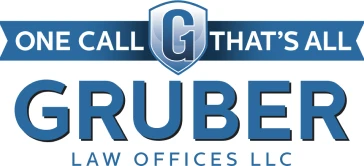What is an IVC Filter?
Many individuals underwent IVC filter implantation to capture blood clots and prevent them from entering the lungs. However, recipients of the retrievable filters are now filing legal claims against manufacturers. Often, these lawsuits state a potential design defect or manufacturing defect, or failing to warn of risks associated with implantation.
An IVC filter, also known as a vena cava filter or blood clot filter, is a small, cone-shaped, spider-like, filter implanted in the inferior vena cava just below the kidneys. IVC filters are designed to capture an embolism, a blood clot that has broken loose from one of the deep veins in the legs before it enter the lungs.
The FDA recommends removing the retrievable IVC filters as soon as protection from pulmonary embolism is no longer needed. The longer the filters are left in the body, the likelihood of migration or breakage increases along with serious injury or death.
FDA Reports
According to FDA reports, when used long term these spider-like filters posed risk for filter fracture, device migration, organ perforation, and other serious side effects, including:
• Deep vein thrombosis (DVT)
• Difficulty removing the filter
• Embolization (movement of the entire filter or filter fragments to the heart or lungs)
• Fracture of the filter
• Perforation of the inferior vena cava
• Tilting of the filter
If you have an IVC filter and are concerned about side effects, contact Gruber Law Offices today for a FREE case evaluation at no cost or obligation.
Reported Injuries
Many individuals underwent IVC filter implantation to capture blood clots and prevent them from entering the lungs. However, recipients of the retrievable filters are now filing legal claims against manufacturers. Often, these lawsuits state a potential design defect or manufacturing defect, or failing to warn of risks associated with implantation.
Many individuals are reporting injuries and adverse events associated with the filter, including:
• Filter Migration
• Punctured Organs
• Filter Parts Breaking Off
• Failed Removal Surgeries
Manufacturer Negligence
Recipients of the retrievable filters have already filed legal claims against two primary manufacturers – C.R. Bard and Cook Medical – who are at the center of the IVC filter litigation.
Filters Being Investigated:
– The Bard Recovery filter
– The Bard G2 filter
– The Bard G2 Express filter
– The Cook Gunther Tulip filter
– The Cook Celect filter
– Other retrievable IVS filters
Timeline
• 2010: The FDA received more than 900 reports of IVC filter injuries and adverse events:
– – 70 filter perforations
– 328 device migrations
– 56 filter fractures
– 146 embolisms
The FDA warns doctors there are long-term risks associated with IVC filters and should be removed as soon the patients risk for pulmonary embolism subsides.
• 2012: The Cardiovascular Interventional Radiology published a study stating that 100% of the Cook Medical filters perforated the study participant’s venal wall within 71 days of implantation.
• 2014: The FDA issues an updated safety communication warning after receiving reports of adverse events and product problems associated with the IVC filters. This update states most devices should be removed between the 29th and 54th day after implantation. However, this is not always occurring and the retrievable IVC filters are being left in long after a patient’s risk for blood clots has subsided.
• 2015: A study published in the Journal of the American Medical Association (JAMA) found that IVC filters were not as effective as blood thinners at preventing pulmonary embolism.
• 2015: The FDA issued a warning letter to Bard in July 2015
IVC Filter Lawsuits
There are currently a number of pending lawsuits in federal and state courts claiming negligence, failure to warn, design defects, manufacturing defects, breach of implied warranty and negligent misrepresentation on the part of the manufacturers.
Gruber Law Offices is offering Free IVC Filter Lawsuit Consultations
If you or someone you know had an IVC filer implanted, you may have a legal claim. Call us now at (414) 240-2199 to learn more or fill out a free and confidential case evaluation below.













